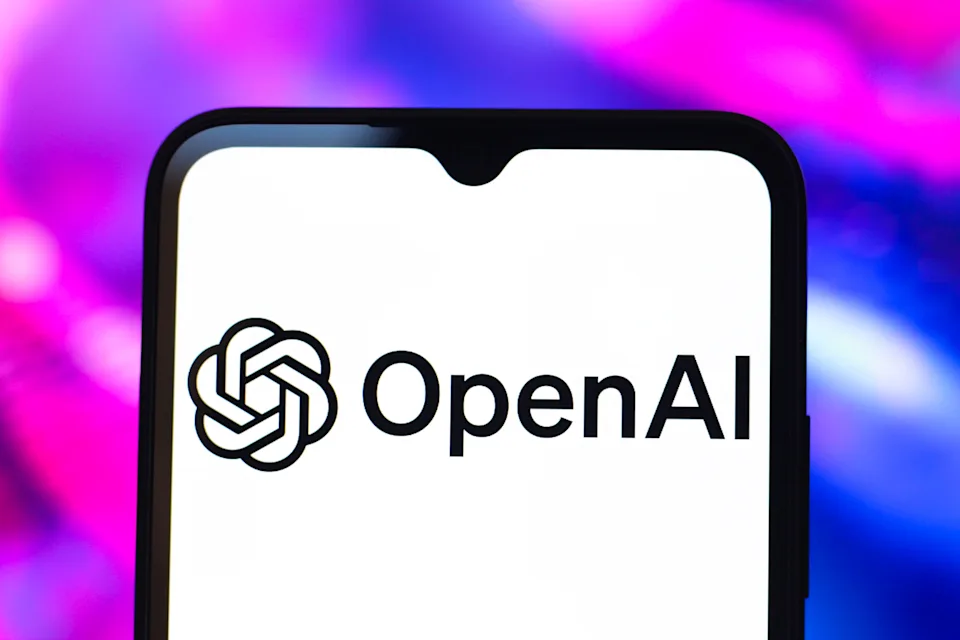![]() Newsflash:
Newsflash:
U.S. tech stocks slide on AI bubble fears10:45 AM
Government Shutdown Halts SNAP Benefits 8:00 AM
UPS Cargo Plane Crash in Kentucky Kills 7 2:45 AM
Democrats Gain in 2025 State Elections 10:00 PM
USPTO Stays Open Amid Federal Shutdown 9:30 AM
US–China Reach Rare-Earth Trade Accord 11:15 AM
Clocks “Fall Back” as Daylight Saving Time Ends 2:00 AM
Federal Government Shutdown Surpasses Historic Milestone12:01 AM
Insurtech Firm to Release Q3 Results 5:00 PM
“Make-or-Break Day” for Millions’ Finances 12:00 AM
SpaceX Prepares for next-icon Starship Launch 10:14 am

Breaking News
![]() Nov 7
Nov 7
by Casey Quinn
OpenAI urges U.S. to expand Chips Act tax credit for AI infrastructure
OpenAI has made a bold request for more help from the government. They want the U.S. government to expand the Chips Act tax credit to cover AI infrastructure beyond just semiconductor companies. The business says that the U.S. needs to give AI servers, data centers, and power grid parts more reasons to work hard in order to stay competitive in the global AI race.
Expanding Chips Act Could Redefine America’s AI Future
The AI Infrastructure Ask..
OpenAI CEO Sam Altman and Chief Global Affairs Officer Chris Lehane have formally requested that the Advanced Manufacturing Investment Credit (AMIC) under the Chips Act be extended to cover capital expenditures for AI servers, data centres and adjacent grid hardware.The proposal highlights an upcoming investment surge — OpenAI has committed to around $1.4 trillion of computational infrastructure spending over the next eight years.
Why the Expansion Matters
The main goal of the current tax credit program is to make and use semiconductors. This means that a lot of the AI supply chain, like high-performance servers, cooling systems, and specialized transformers, is missing. OpenAI says that tax breaks can lower capital costs, which will help the U.S. build AI infrastructure faster, ease bottlenecks, and rely less on foreign supply chains. Experts in the field say that the Chips Act should put money into data centers and the grid. This would not only help the private sector grow, but it would also keep AI processing power in the U.S., making it safer. Big tech companies might build even better AI clusters in the U.S. if more people were qualified. This would create more jobs in the construction, manufacturing, and energy fields. Supporters say that the change would help the U.S. keep up with China and the European Union, both of which are spending more on cutting-edge AI technologies.
Government Response & Policy Implications
Even if OpenAI is seeking for one, the White House has declared again that it will not offer AI businesses a federal bailout. According to experts in law and policy, Congress would undoubtedly have to do something to make the tax credit bigger because the AMIC's current scope is determined by law and Treasury guidelines. The corporation is anxious about how much energy it needs, how the supply chain works, and how vital AI infrastructure is for the country's capacity to compete. The government says it backs AI innovation, according to people in the administration. But any revisions to the Chips Act must find a balance between being cautious with money and reaching long-term goals for industrial policy. Both sides of the aisle want to offer AI incentives, but they can't agree on whether AI servers and data centers are "manufacturing" under the current rules. individuals who give advice on the economy suggest that boosting credit might affect where individuals invest their money, moving it from creating chips to building infrastructure.
Supporters, on the other hand, contend that modern AI systems need more than just producing chips; they also need processing power and a mechanism to transmit data around. This indicates that growth can't happen unless the definition is updated. The argument also says that AI data centers use a lot of energy and need a lot of cooling, which is terrible for the environment. Some lawmakers want any new AI tax breaks to be tied to incentives for renewable energy to aid the environment. This might be one of the biggest shifts to U.S. tech-industrial policy since the Chips and Science Act was adopted, if people agree with it. In the age of AI, what is considered "critical infrastructure" would alter.
"OpenAI Presses Washington to Broaden Chips Act for AI Growth"
Breaking News
San Francisco — OpenAI has asked the U.S. government to add AI infrastructure, like data centers and power grid parts, to the Chips and Science Act. Sam Altman, the CEO, thinks that bigger tax credits are needed to keep the U.S. in the lead in artificial intelligence. Experts say that the move might bring in a lot of money, improve supply chains in the US, and maintain AI innovation in the US.
Outlook..
If Congress agrees to extend the tax credit to include AI infrastructure, it could bring in billions of dollars in private investment, help U.S. manufacturing, and help the U.S. get back ahead in the global AI infrastructure race. On the other hand, if the idea doesn't work out, the U.S. could fall behind countries that are quickly making their own AI systems. OpenAI and its competitors will have a lot of work to do in the next few months. They will have to deal with issues with money, energy, the supply chain, and rules all at once. The outcome will have an impact on the future of AI in the U.S. and the country's position in the global race for technology.

Casey Quinn
Casey Quinn is a U.S. technology reporter covering innovation, digital policy, and emerging trends in the tech industry.